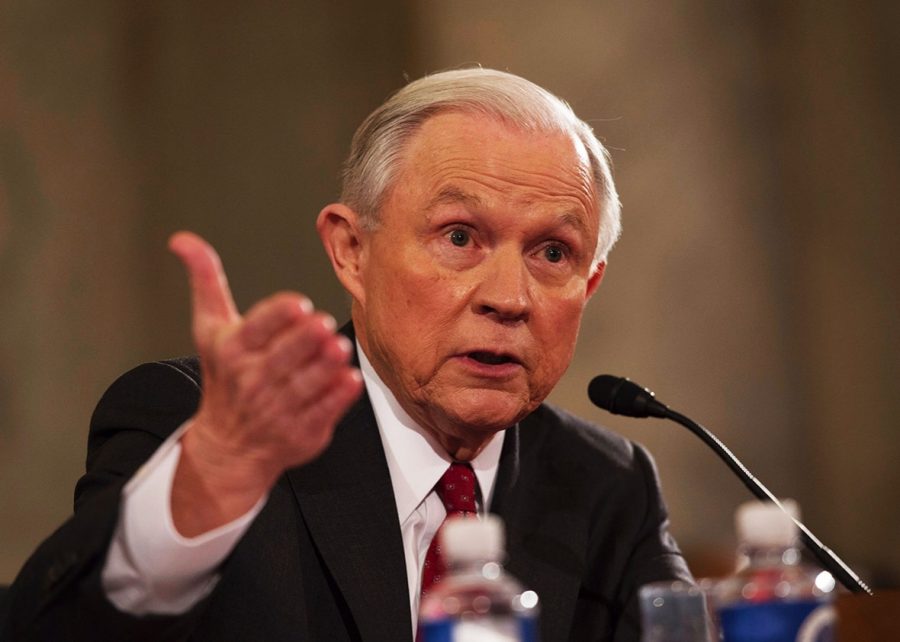States’ Rightist Sessions Slams States’ Rights
The hypocritcal impact Jeff Sessions will have on Marijuana and his deployment of enforcement on the product.
January 19, 2018
Attorney General, Jeff Sessions, recently made the decision to rescind Obama-era policies which favored the decriminalization of Marijuana to a more aggressive approach.
Sessions had made previous remarks concerning the usage of Marijuana that some deemed reflective of his racial disposition and worldview, saying notably, that he thought members of the Ku Klux Klan party “okay” people until he found out that they smoked pot. This comparison appears to display where Jeff Sessions’ racial policy reasoning falls along and its basis for action which can be equated to his position on the usage of weed in all categories: medical and recreational. This political stance he has took, conflicts with his previous decisions that have been against federal control and pro state rights. This policy implementation depicts his deep hatred for the usage of Marijuana.
Jeff Sessions is now getting the chance to be able to lock up his past foes, hippies and mostly blacks. As a widely known racist, he has fought against not only undocumented immigration but legal immigration consisting of hispanics. His time as a Senator of Alabama, his was a opponent of guest worker programs and even passed a bill that banned federal contractors from hiring undocumented citizens, offering major repercussions if not followed. He also proposed a resolution for the depleting wages by limiting immigration, of all people, perpetuating this country’s white dominance. In 1986, Sessions was even accused for making racially insensitive jokes regarding the use of the n word and previously stated, his views on the KKK. All these acts of his past represent a deeper meaning on how he functions regarding his policy making. This decision, in totality, will help sustain the private-prison industrial complex – the attribution of the rapid expansion of the US inmate population to the political influence of private prison companies and businesses that supply goods and services to government prison agencies for profit, which yields earnings based on the amount of prisoners. Though the legal picture of how all of this may unfold remains murky, one can foreshadow how enforcement will proceed.
His legal approach seems inconceivably problematic to be able to deploy effectively. Sessions has told federal prosecutors that in states where Marijuana is legalized, to not use federal discretion, but on “illicit enterprises” according to the Washington Post. This may same practical in principal but in practice it is not. The Rohrabacher-Farr amendment forbids the Justice Department from interfering with medical marijuana where it is legalized, 37 states fall in this category, but his crackdown will still persist. And the state that will be affected dramatically is Colorado. This past year, Colorado has gained over 200 million dollars of tax revenue from the legal sell of marijuana. It seems as if the money is a major supplementation of the regional economy, but the majority of it goes to the regulations and its enforcement’s. The money that is left over, is used to build schools across the state, which has boosted Colorado’s regional economy and boosted the academia. Also, due to the boom, the funding has gone to housing programs and aiding mental health programs in prisons, which has reduced the rate of incarceration, and minimize the homelessness epidemic. All may fumble due to Session’s aggression on the vulnerability of “states rights.’’


